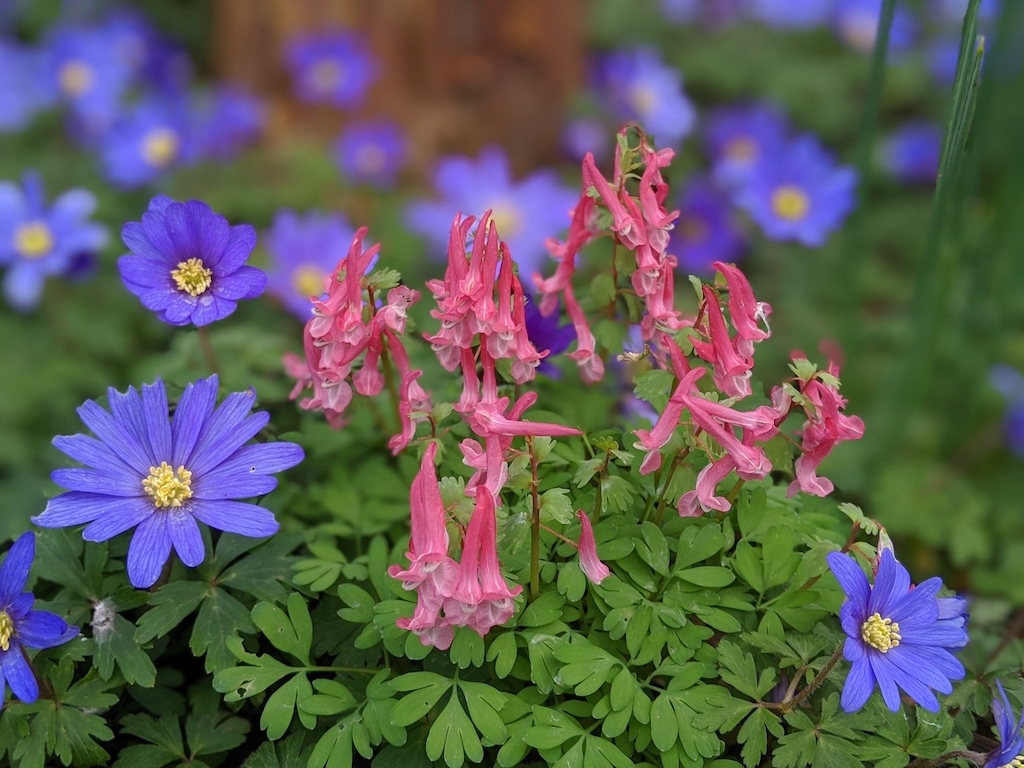
I was going to write about a dependable, evergreen, scented shrub but decided at the last minute that we might all need a bit of cheer. This fumitory (as they’re commonly known) ‘Beth Evans’ cuts the mustard and is equally dependable and also tough: a couple of years ago it was covered with snow one spring morning and reappeared quite unperturbed a few days later!
Corydalis ‘Beth Evans’ is an easy, tuberous, herbaceous perennial and has beautiful, ferny, grey-green foliage and tubular pink flowers with a white flash on the spur. It reaches about 25 cms in height and grows happily with small bulbs and other spring flowers of a similar height – chionodoxa, scilla, late crocus etc and in our garden with anemone blanda as seen in my photograph.
It is happiest in cool and damp dappled shade where it is protected from the hot summer sun. It would also do well planted among perennials that come into leaf as the corydalis dies down. It’s worth remembering that it is dormant from midsummer.
Always buy ‘Beth Evans’ when it’s in flower, one often reads that they can be variable – as will your own seedlings, but life is too short to be deadheading any plant that grows so close to the ground, and most especially at a time when there is so much else to do in the garden. Purists will undoubtedly disagree.
I have long wanted to grow a blue flowered corydalis (and there are a few to choose from) but have been defeated on every occasion; sometimes one must just admit defeat. I am told that they need deep leafmould and that they also do well in a pot; so perhaps one last attempt?
NB Louise has published a beautifully produced book of her plant profiles – A Plant for Each Week of the Year. It costs £9.99 and is for sale in our online shop here.
More NB If you’d like a bit more gardening chit-chat from the3growbags just enter your email address here:
